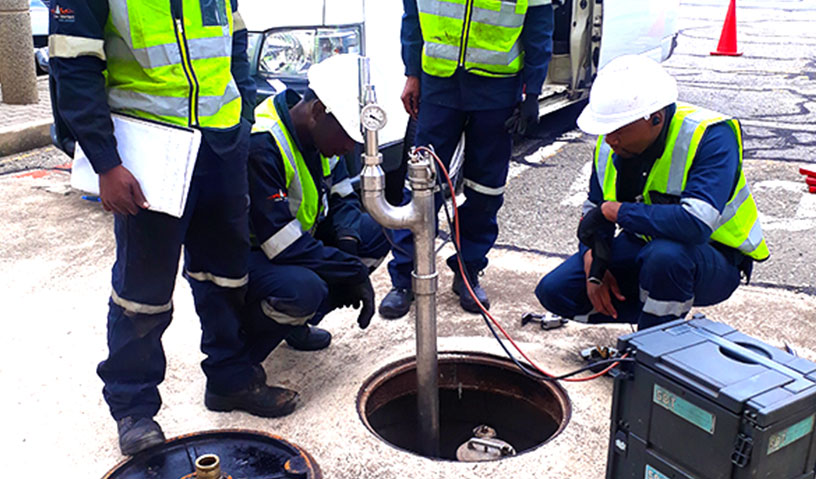In view of the possible pollution of soils or groundwater, the storage of petrochemical tank is more subject to strict operating conditions. Rigorous periodical tank leak-tightness monitoring is imposed in order to guarantee incident-free operation as per API Standards. The aim is to be able to identify any rapid leaks to limit all risk of pollution as far as possible. In the event of major leaks, it may be necessary subsequently to clean up the surrounding sub-soil, which usually leads to relatively costly environment and penalties Ultrasonic testing is the procedure of introducing sound wave into the exterior side of the metal surface and reflecting the sound wave from its interior surface to produce a measurement of wall thickness. The two-way duration of travel, divided by the known sound velocity through that particular metal, provides a thickness measurement equally accurate to a micrometer, It also detects leaks on the tanks.
NDT Method is also used to determine the integrity of the above ground tanks and pipe line systems. Another method to check for integrity of any connections is leak detectors using MiniRAE 3000. This is an advanced volofitc organic compound (VOC). Its Photoionisation detectors (PID) extended range of 0 to 15000ppm makes it an ideal instrument for applications from industrial hygiene to leak & hazmat detection.
Get a Quote
